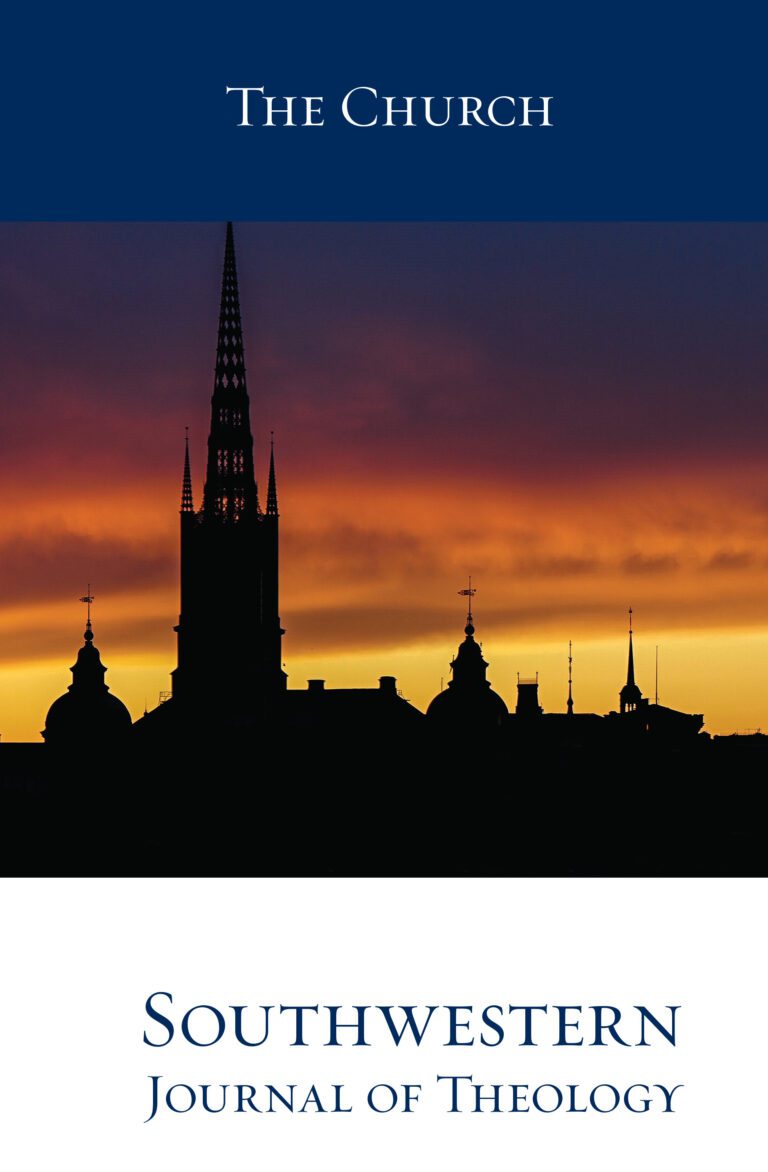
The Church
Southwestern Journal of Theology
Volume 61, No. 1 – Fall 2018
Editor: W. Madison Grace II
By William Lane Craig. New York: Oxford University Press, 2017. 241 pages. Hardcover, $82.00.
Platonism is one of the oldest and most prominent systems of philosophical beliefs, but is it compatible with a theistic worldview? That is the question that William Lane Craig considers in his book God Over All. Craig asserts that Platonism (as it regards the existence of abstract mathematical entities) is not compatible with a theistic worldview due to its violation of the doctrine of divine aseity. Aseity is the belief in God’s self-sufficiency. He alone is eternal and uncreated, and all other things in existence proceed from him (1–2). Platonism, however, argues that there exists abstract entities independent of God that are eternal, uncreated, and potentially exemplified in reality; therefore, God is not the source of all other things in existence (2–3).
In support of divine aseity, Craig cites John 1:1 to emphasize that God alone is eternal and uncreated. All other reality is created and dependent on God (13–24). He claims the same idea is found in Paul’s writings, specifically 1 Corinthians, Romans, and Colossians (24–27). The church fathers as well supported the notion of aseity. Some of the fathers even referred to Platonism as heresy (31–40). From a theological viewpoint, Platonism is also heretical because it implies that there is an abstract entity called deity that God exemplifies making his existence dependent on something (43).
The modern issue of abstract entities involves mathematics stemming from the Indispensability Argument which claims that there are abstract entities that are needed in order to have referents in certain types of sentences (45–46). Singular terms and existential qualifiers are tools of ontological commitment: there is/are _____. Since a sentence such as 2+2=4 has simple terms and an object to which we supposedly must be ontologically committed, then there must be abstract entities to represent those terms (49–50). Thus, mathematics seems to commit the theist to the existence of necessary mathematical entities.
Craig reviews a number of potential approaches the theist could take in order to overcome this theological problem. Absolute Creationism argues that abstract entities were necessarily emanated/created by God. Divine Conceptualism, the view of the church fathers, reduces abstract entities to God’s thoughts. Craig ultimately is dismissive of these realist views (though he thinks they are still available to a theist) and favors an anti-realist approach to mathematical entities. He prefers to reject the Indispensability Argument as committing one to the existence of abstract entities since it seems to imply that numerous strange and dubious entities exist. Views such as neutral logic and free logic state that the existential qualifier should be neutral in its claims of what does and does not exist. One should get rid of any preconditions in logic that settle what does and does not exist (140).
This opens a way to other approaches to mathematical entities which include fictionalism, figuralism, and pretense theory. Each of these theories regards mathematical entities or discourse about such entities to be either literally false, merely figures of speech, or make-believe; however, mathematics still conveys some sort of truth. As a result, Platonic mathematical entities do not literally exist and a theist need not be ontologically committed to their existence. Craig believes that this is the best approach to overcoming the threat of Platonism to theism.
It must be said that Craig presents a strong biblical case against Platonism from which a Platonic theist will not easily extricate himself. If God is the source of all reality apart from himself, then a theist has good reason to suspect the theological adequacy of standard Platonism. It is difficult to see how a theist could make Platonism consistent with the biblical data on this issue, but perhaps it is possible.
That being said, I find Craig’s criticisms of absolute creation and divine conceptualism (outside of the bootstrapping concern) rather insubstantial. Further, it seems to me that the bootstrapping concern is easily overcome without giving up a constituent ontology as Craig suggests, such as appealing to Aristotelian substance theory. I also find it strange that Craig notes that divine conceptualism is the historical theistic ontology but does not cover the classical approaches, only a modern one. Lastly, Craig treats the Indispensability Argument as the crux of Platonic thought; however, I am not convinced that it is. It seems to me that a (modified) Platonic theist has other arguments both philosophical and theological to bolster his claims for abstract entities besides the Indispensability Argument. Even if that argument fails, it seems that abstract mathematical entities could still exist based on other grounds.
Craig’s appeal to anti-realism also bothers me. According to Craig, mathematical truth can be maintained via fictionalism, figuralism, and pretense theory. I do not see how. I can understand what truth The Lord of the Flies is conveying even though it is fiction. I can understand what truth “It is raining cats and dogs” is conveying even though it is figurative language. I can understand the truth behind hypothetical situations even though they are make-believe. But what truth am I to receive from 2+2=4 if this claim is literally false, metaphorical, or just make-believe? When science claims that light travels at 186,000 miles a second, what truth am I supposed to conclude if this claim is not literal?
In fact, why should anyone accept mathematics if it is not a literal claim about reality? People do not accept works of fiction as guides to history or figurative language and imagination as statements of fact. Could not a person simply reject mathematics as irrelevant to understanding reality? What does it matter that mathematics is internally consistent within its own rules? Why accept the rules in the first place? It seems to me that Craig’s preferred path leads to an epistemological relativism regarding mathematics and any truth claim that relies on it, which undercuts anti-realism’s warrant.





